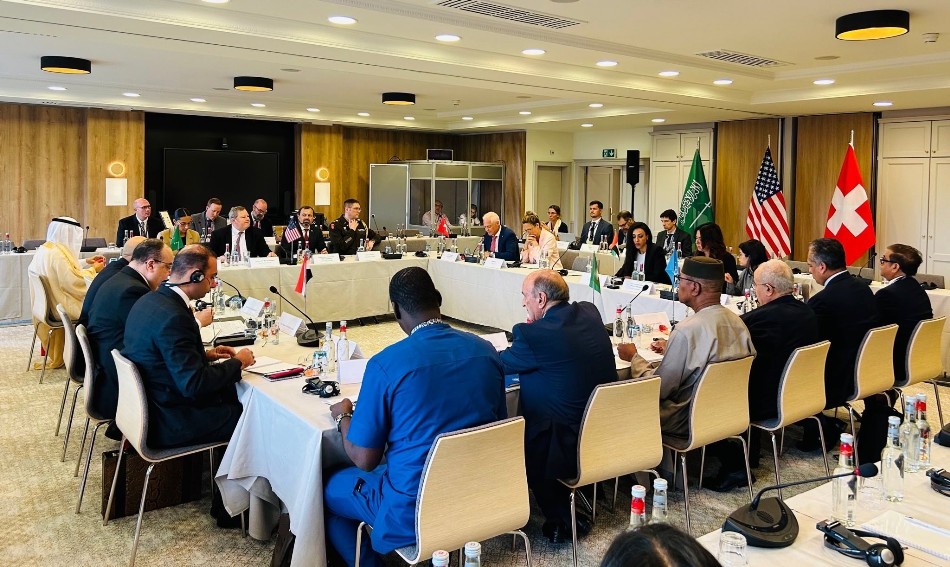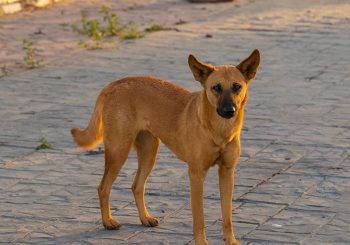After 10 days of negotiations, Sudan peace mediators – including representatives from the United States, the United Arab Emirates, and Egypt – reported some progress on humanitarian aid delivery negotiations in Geneva, Switzerland, on Friday, 23 August.
Initially, the Sudanese military failed to send representatives to the talks, while the paramilitary Rapid Support Forces (RSF) remained ambiguous about their participation.
The peace talks, which commenced Wednesday, 14 August, in Geneva, Switzerland, are part of a broader effort to address the humanitarian catastrophe unfolding in Sudan.
Despite the presence of diplomats from Saudi Arabia, Egypt, the United Arab Emirates, the African Union, and the United Nations, the absence of Sudan’s military derailed the talks from their first day, and although the RSF sent delegates to the talks, their attendance at the start of the discussions was unconfirmed.
In a joint statement, host countries and stakeholders emphasized their ongoing diplomatic efforts to support humanitarian access and achieve a cessation of hostilities in Sudan.
Sudan’s military-backed government, led by General Abdel Fattah al-Burhan, declined to participate in the Geneva talks, opting instead to focus on a new round of negotiations in Cairo, building on the Jeddah Declaration signed in May 2023.
The Geneva talks, however, led to commitments from both the Sudanese army and the paramilitary Rapid Support Forces (RSF) to ensure “safe and unhindered humanitarian access,” according to the mediators. Additionally, the RSF agreed to a code of conduct for its fighters, instructing them to respect civilian lives.
However, despite these advances, a ceasefire agreement remained elusive. SAF, who refused to participate in the Geneva talks, continued to withhold their commitment to halting the ongoing conflict.
Back to the Jeddah Declaration
In May 2023, the United States and Saudi Arabia spearheaded a mediation process between the Sudanese Armed Forces (SAF) and the Rapid Support Forces (RSF) in Jeddah, Saudi Arabia. However, the effort was widely criticized, with many observers accusing the mediators of prioritizing their own bilateral interests over a genuine commitment to resolving the conflict.
The lack of meaningful progress during the Jeddah talks dashed hopes for a resolution to a conflict that has displaced millions within and beyond Sudan’s borders, ravaged the economy, and sparked ethnically driven massacres in the Darfur region.
Since the failed negotiations, the situation on the ground has deteriorated further.
The Sudanese army has intensified air strikes in the capital, Khartoum, while the RSF has made significant advances in the Darfur and Kordofan regions. The conflict continues to spiral, deepening the humanitarian crisis and further complicating efforts for peace.
In a statement earlier this week, Sudan’s Sovereign Council announced the dispatch of a delegation to Cairo for consultations with the U.S. on ending the war. The Council expressed gratitude to Egypt for its efforts to halt the conflict and support the Sudanese people, while also clarifying that these talks were unrelated to the Geneva meetings.
The Cairo consultations, according to the Council, were intended to provide clarity on implementing the Jeddah Declaration, which is seen as the foundation for genuine peace and the restoration of normal life in Sudan.
However, a meeting in Cairo between Sudanese and U.S. officials, scheduled to discuss the Jeddah Agreement’s implementation, was postponed due to disagreements over the composition of the Sudanese delegation. The inclusion of members from Sudan’s military intelligence and armed groups from Darfur led to objections from the U.S. and Egypt, resulting in the delay.
U.S. envoy to Sudan, Tom Perriello, confirmed his departure from Cairo, returning to Switzerland to continue discussions on humanitarian aid delivery. Despite the postponement, the Sudanese government reiterated its commitment to peace initiatives, underscoring the importance of coordination and transparency in such diplomatic efforts.
The War in Sudan
The Sudanese civil war traces its roots to the December 2018 revolution, which ended the long-standing regime of Omar al-Bashir. In the aftermath, Sudanese factions brokered a power-sharing deal between the Forces of Freedom and Change (FFC) coalition and the military, under the leadership of Army Commander Abdel Fattah al-Burhan and Rapid Support Forces (RSF) Commander Mohamed Hamdan Dagalo, widely known as Hemedti.
This fragile partnership unraveled in October 2021 when military leaders ousted the civilian coalition and Prime Minister Abdalla Hamdok, replacing them with a new authority that included civilian allies from former rebel movements. Key figures in this new arrangement included Gibril Ibrahim, Minni Minawi, and Malik Agar.
After a year of escalating political instability, al-Burhan and Hemedti appeared close to finalizing an agreement to conclude the transitional phase. However, the negotiations collapsed when al-Burhan refused to sign, sparking the onset of war.
In October 2023, the Forces of Freedom and Change, representing the revolutionary ruling coalition, formed a broader alliance with civil society and trade union groups under the banner of Taqaddum. The coalition appointed former Prime Minister Abdalla Hamdok as its leader and declared their neutrality in the ongoing conflict.
As the international community looks to upcoming peace talks in Switzerland with cautious optimism, the need for a peaceful resolution has never been more pressing. The conflict continues to wreak havoc across Sudan, leading to the world’s largest displacement crisis and severe food shortages, underscoring the urgency of finding a path to peace.







Comments (0)